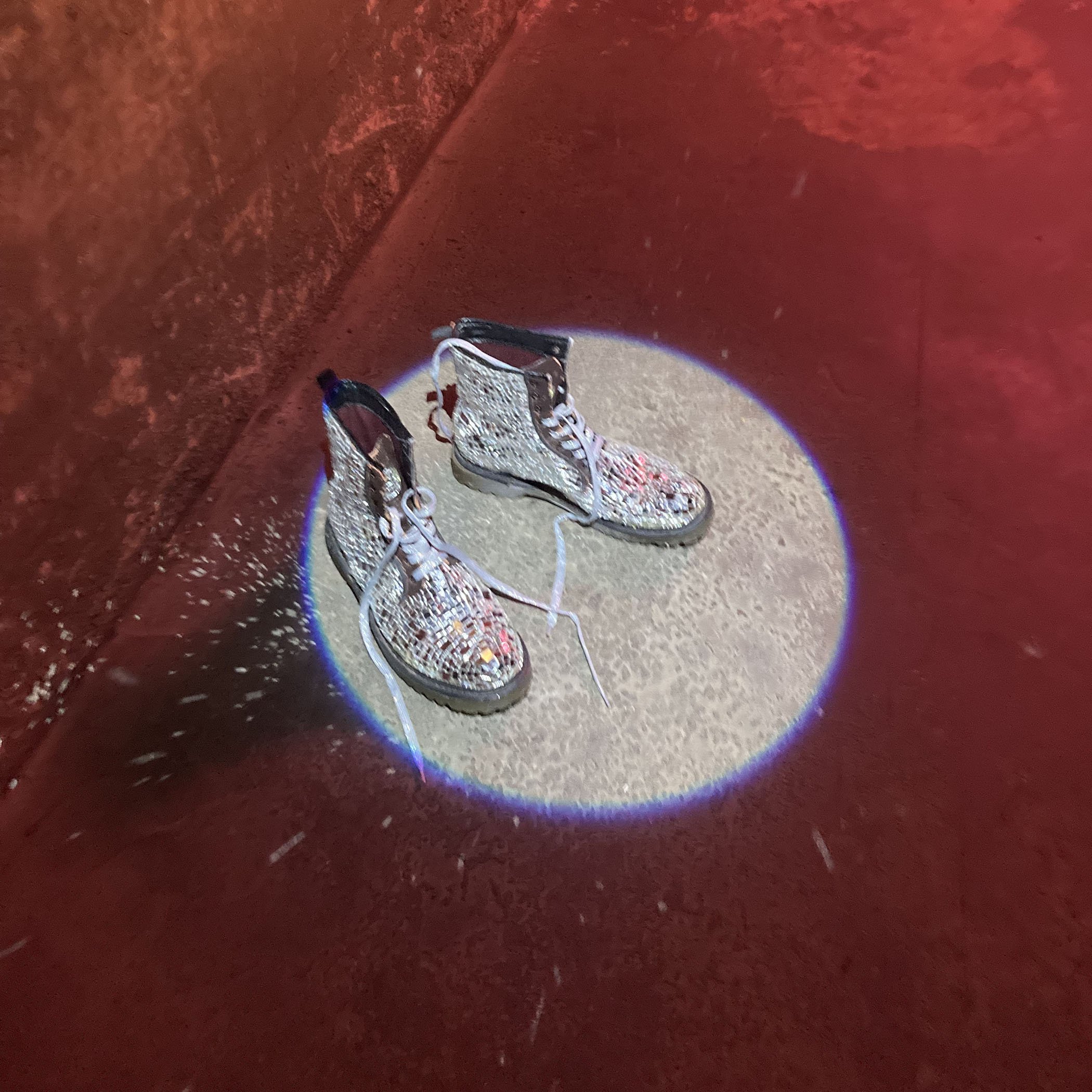Frankie Toan, Queer Gradens: Unruly
Project Spaces, Session 1
Atlanta Contemporary
August 24 - October 22, 2023
To coincide with the exhibitions in their Main Gallery, I was invited by Atlanta Contemporary to curate their Project Spaces for two Sessions. Centered around a theme of queer/trans community and care, I invited Sebastian Duncan-Portuondo, Frankie Toan, and Liz Williams to install work in Chute Space (a former coal chute), Sliver Space (a sliver of splace between two walls), and Gallery 4 (a dedicated projection space.)
Frankie’s installation Queer Gardens: Unruly focuses on weeds as a metaphor for queerness, thriving under unlikely and sometimes harsh conditions. Liz’s video Why I Rebel shows a collection of portraits and audio interviews of community members who actively challenge prevailing currents of prejudice. In Sebastian’s Club Exile in Atlanta, the old coal chute leading to the basement is transformed into an altar with portraits of Pulse Nightclub and Club Q shooting victims surrounded by fabric flowers and mirror mosaic devotional objects. All three artists show the potential for hope through community.
Photos: Erika Diamond
Sebastian Duncan-Portuondo Statement:
Club EXILE in Atlanta is a show of artwork by queer-identified, Cuban-American artist Sebastian Duncan-Portuondo (b. 1986, Miami, FL), who explores stained glass and mosaics through his practice. The Club EXILE project started as a response to the 2016 shooting at Pulse Nightclub in Orlando, FL, whose victims were primarily queer latino/as. As the project evolved, Club EXILE became a way of thinking through exile as a space that connects multiple identities of marginalized peoples. In this work, mirror mosaics (DISCOmosiacs) reference the disco ball and the dance floor, often articulated as a sacred space for the queer community. In the Atlanta Contemporary show, the old coal chute leading to the basement is transformed into an altar with portraits of the Pulse Nightclub and Club Q shooting victims surrounded by fabric flowers and devotional objects. Neons, a dichroic glass disco ball, DISCOmosaic wall pieces and sculptures reflect light around Chute Space. In the midst of different imagery throughout Club EXILE, the flying fish emerges as a symbol of queer hope - when a fish learns to fly to escape predation, blurring boundaries between sky and water in an almost supernatural way.
Frankie Toan Statement:
Queer Gardens: Unruly looks towards ‘the garden’ as a potential site for radical reimaginings of family, work/productivity, time, green space, and nourishment. In the garden we can find our place in interspecies ecosystems of care and sustenance. We can move beyond the human measures of industry, blurring the lines between work and play. While we till and plant, water and mulch we find a direct relationship between our physical labor, space, ecology and future harvest. In the garden there is interdependence. This is a place that humans can learn from, but we must look critically towards current relationships between humans and the earth, cities and green space, home and garden.
Liz Williams Statement:
The Why I Rebel series showcases a collection of portraits and audio interviews featuring community members who actively challenge prevailing currents of prejudice. In response to the prompt ‘Why I Rebel,’ participants are invited to share their insights through audio recordings while being photographed with their answers superimposed over their faces. The interviews and photographs serve the purpose of offering viewers a glimpse into the models’ perspectives on individual and communal resilience, determination, along with an unwavering commitment to change. Moreover, they aim to encourage viewers to engage in introspection, examine their own beliefs and actions, and consider how they can contribute to a more inclusive and equitable society. The series is created by Liz Williams (She/They) and produced in collaboration with Southern Equality Studios, the art program of the LGBTQ+ non-profit organization Campaign for Southern Equality (SouthernEquality.org).









